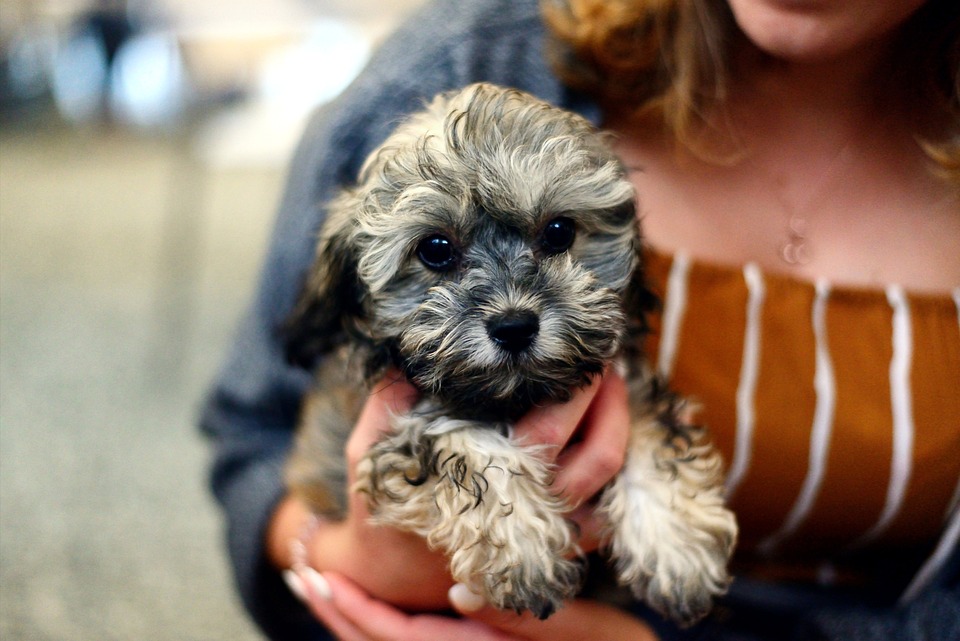A GUIDE TO PREVENTING AND MANAGING COMMON EYE PROBLEMS IN DOGS
Introduction:
Understanding the importance of eye health in dogs and learning how to prevent and manage common eye problems is crucial for every pet owner. This guide aims to provide valuable insights and tips on maintaining optimal eye health for your furry friend.
I. The Importance of Eye Health in Dogs:
Just like humans, dogs rely heavily on their vision for daily activities. Healthy eyes are essential for dogs to navigate their surroundings, engage in play, and interact with their owners. Maintaining good eye health is crucial to ensure their overall well-being and quality of life.
II. Common Eye Problems in Dogs:
A. Conjunctivitis: Also known as “pink eye,” conjunctivitis is a common eye problem in dogs. It is characterized by redness, discharge, and swelling of the conjunctiva, the thin membrane covering the inner surface of the eyelids and the white part of the eye.
B. Dry Eye: Dry eye, or keratoconjunctivitis sicca (KCS), occurs when the tear glands do not produce enough tears to keep the eyes adequately lubricated. This can lead to discomfort, redness, and potential corneal damage.
C. Corneal Ulcers: Corneal ulcers are open sores or wounds on the cornea, the transparent outer layer of the eye. They can be caused by trauma, foreign objects, or underlying eye conditions and can lead to pain, tearing, and vision impairment.
D. Cataracts: Cataracts occur when the lens of the eye becomes cloudy, resulting in blurred vision or even blindness. This condition is often associated with aging but can also be caused by genetics, diabetes, or trauma.
E. Glaucoma: Glaucoma is a condition characterized by increased pressure within the eye, which can damage the optic nerve and lead to vision loss if left untreated. Symptoms include redness, pain, and a cloudy appearance of the eye.
F. Progressive Retinal Atrophy (PRA): PRA is a genetic condition that causes the degeneration of the retina, leading to progressive vision loss and eventually blindness. It is more common in certain dog breeds.
III. Preventing Eye Problems in Dogs:
A. Regular Veterinary Check-ups: Schedule regular check-ups with your veterinarian to monitor your dog’s overall health, including their eye health. Early detection and treatment of any potential issues can prevent them from progressing into more serious conditions.
B. Proper Nutrition: Providing a balanced and nutritious diet can contribute to your dog’s overall health, including their eye health. Consult with your veterinarian to ensure your dog’s diet meets their specific nutritional needs.
C. Avoiding Irritants and Allergens: Keep your dog away from irritants such as smoke, dust, and chemicals, as they can cause eye irritation and lead to more severe problems.
D. Protecting from UV Rays and Debris: When spending time outdoors, protect your dog’s eyes from harmful UV rays by using dog-specific sunglasses or staying in shaded areas. Additionally, consider using protective goggles to prevent debris from entering their eyes during outdoor activities.
E. Regular Eye Cleaning: Clean your dog’s eyes regularly to remove any dirt or discharge that may accumulate. Use a clean, damp cloth or specially formulated eye wipes recommended by your veterinarian.
IV. Managing Common Eye Problems in Dogs:
A. Identifying Symptoms: Be vigilant and watch for signs of eye problems in your dog, such as redness, discharge, excessive tearing, squinting, or changes in behavior related to their eyes.
B. Seeking Veterinary Care: If you notice any concerning symptoms or changes in your dog’s eyes, it is essential to seek veterinary care promptly. A veterinarian can perform a thorough examination and provide a proper diagnosis.
C. Administering Medications and Treatments: Depending on the specific eye problem, your veterinarian may prescribe medications, ointments, or eye drops to manage the condition. Follow their instructions carefully and administer the treatments as directed.
D. Post-Treatment Care and Follow-up: After receiving treatment, closely monitor your dog’s progress and follow any post-treatment care instructions provided by your veterinarian. Attend follow-up appointments to ensure the condition is properly managed.
V. Frequently Asked Questions (FAQs):
1. Can I use human eye drops for my dog’s eye problem? It is not recommended to use human eye drops without veterinary guidance. Some human eye drops may contain ingredients that can be harmful to dogs.
2. How often should I clean my dog’s eyes? The frequency of eye cleaning can vary depending on your dog’s individual needs. Consult with your veterinarian for specific recommendations.
3. Are certain dog breeds more prone to eye problems? Yes, certain dog breeds are more predisposed to certain eye problems. Breeds such as Bulldogs, Shih Tzus, and Pugs are more prone to eye issues like conjunctivitis and dry eye.
4. Can diet affect my dog’s eye health? Yes, a nutritionally balanced diet can contribute to your dog’s overall eye health. Consult with your veterinarian to ensure your dog’s diet supports their specific needs.
5. What signs indicate a potential eye problem in dogs? Signs of potential eye problems include redness, discharge, excessive tearing, squinting, cloudiness, and changes in behavior related to their eyes.
6. How can I protect my dog’s eyes during outdoor activities? Use dog-specific sunglasses, stay in shaded areas, and consider using protective goggles to prevent debris from entering your dog’s eyes during outdoor activities.
Conclusion:
By understanding the significance of eye health in dogs and implementing preventative measures, pet owners can effectively reduce the risk of common eye problems. Regular veterinary check-ups, proper nutrition, and protection from irritants and allergens are essential. Additionally, being proactive in identifying symptoms and seeking timely veterinary care is crucial for managing any potential eye problems. Remember, healthy eyes lead to a happier and more comfortable life for your beloved four-legged companion.
Disclaimer: It is always recommended to consult with a veterinarian for personalized advice and treatment options for your dog’s specific eye health needs.









